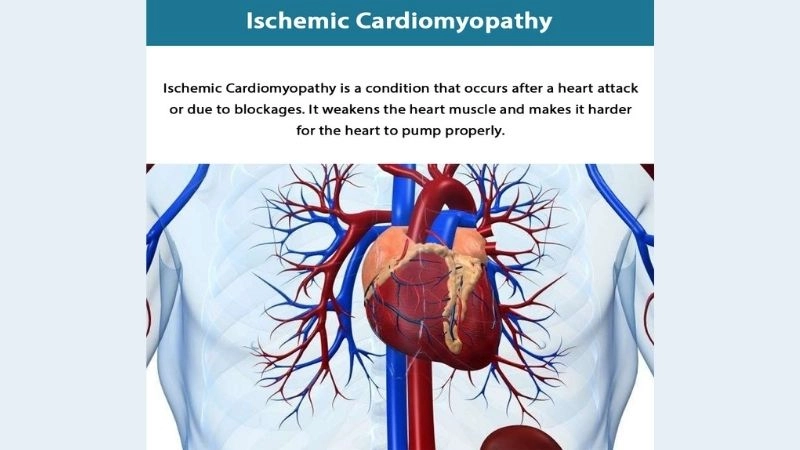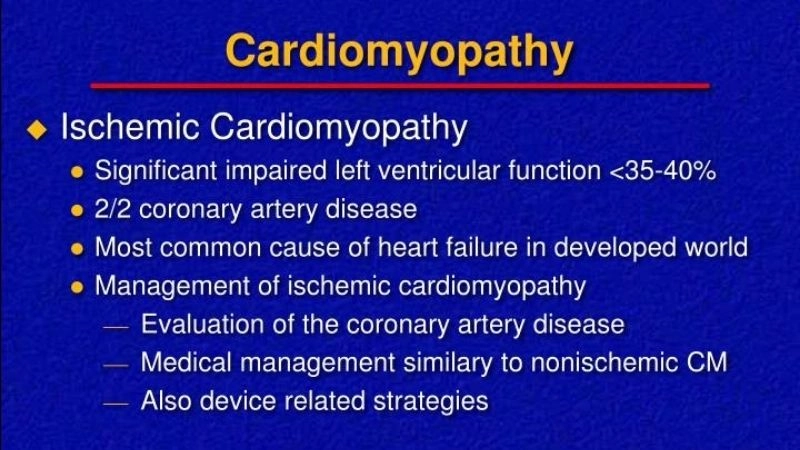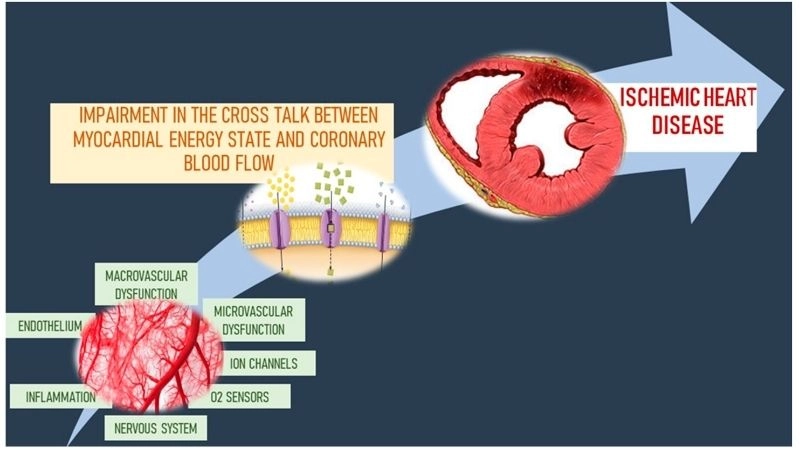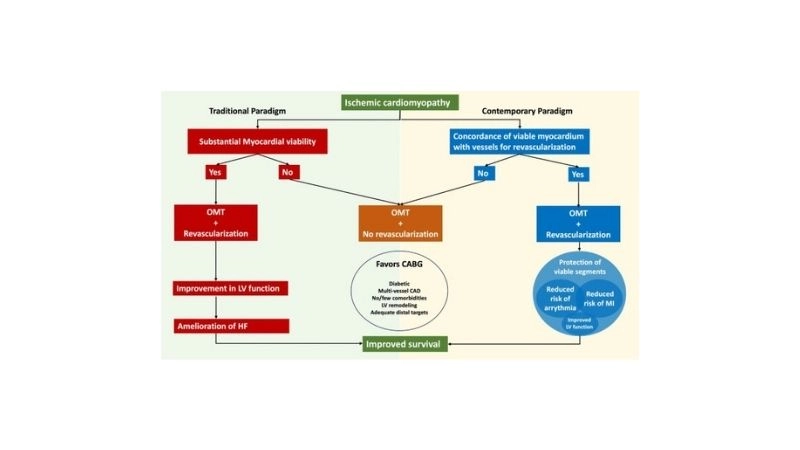Ischemic Cardiomyopathy affects heart function due to poor blood flow. Discover key symptoms, treatment options, and lifestyle strategies to stay healthy.
What are the main causes of Ischemic Cardiomyopathy?
- Coronary artery disease narrows blood vessels, restricting oxygen supply to the heart and leading to weakened muscle function over time.
- Previous heart attacks leave scar tissue that disrupts normal heart pumping ability, eventually progressing to ischemic cardiomyopathy.
- High blood pressure forces the heart to work harder, damaging muscle fibers and increasing the risk of ischemic cardiomyopathy.

Ischemic cardiomyopathy symptoms include chest pain and fatigue
>>> See more: Symptoms and diagnosis of Hypertrophic Cardiomyopathy (HCM)
Key symptoms of Ischemic Cardiomyopathy to watch for
- Shortness of breath occurs during rest or activity, often worsening at night and signaling reduced heart efficiency.
- Chest pain or angina develops when the heart struggles to get sufficient blood flow, particularly during exertion or stress.
- Fatigue and weakness appear due to poor circulation, leaving the body with insufficient energy for normal activities.
How can you prevent Ischemic Cardiomyopathy effectively?
- Maintain a balanced diet rich in fruits, vegetables, and whole grains to reduce cholesterol and improve cardiovascular health.
- Engage in regular physical activity, such as walking or swimming, to strengthen the heart and improve blood circulation.
- Avoid smoking and limit alcohol consumption, as both increase cardiovascular strain and worsen existing heart conditions.

Ischemic cardiomyopathy treatment uses meds, devices, or surgery
>>> See more: Arrhythmogenic Right Ventricular Cardiomyopathy (ARVC)
Images visual examples of Ischemic Cardiomyopathy
Ischemic cardiomyopathy is a serious heart condition caused by reduced blood flow to the heart muscle, leading to weakness, scarring, and impaired pumping ability.







>>> See more: Living With Left Ventricular Non-compaction Cardiomyopathy
Managing Ischemic Cardiomyopathy requires proper treatment, lifestyle changes, and monitoring. Early detection improves outcomes and supports heart health.





